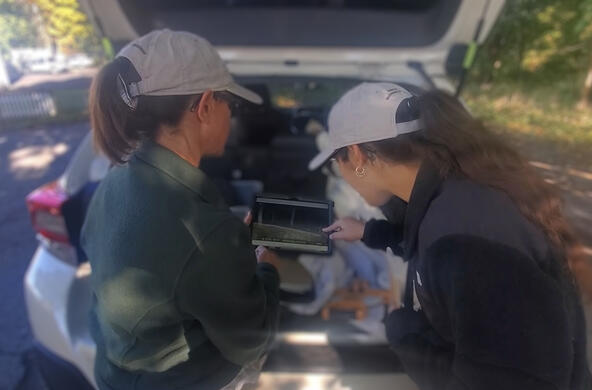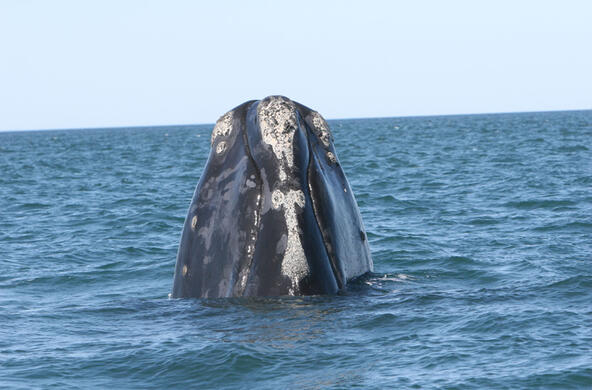CNN Online News: Lincoln County, Missouri, June 28, 2008. "Muskrat holes weaken levee north of St. Louis, Missouri, officials say - Late-night rains prove too much for levee to handle - Mississippi River being held back by sandbags - Latest breach threatens 100 homes."
"The U.S. Army Corps of Engineers blamed the structural collapse on pockets dug in the levee walls by muskrats. These pockets had led to 'down slides' that had occurred in two 100-foot-sections of the levee over the past several days." " 'Until this morning, we felt our progress was successful and would hold the water back,' said Andy Binder, public information officer for Lincoln County. 'However, Mother Nature's priorities were apparently different.' "
This is not new news. The Louisiana Historical Photographs Collection of the State Library has pictures from 1908 showing muskrat holes in levees. There are scientific studies on muskrat burrowing in levees in Illinois, Texas, and Louisiana published in the 1940s. Muskrats have caused levee collapses in the past and will likely do so in the future. It is in the very nature of muskrats.
Muskrats are rodents about four times the size of the brown rat. They are common in Lincoln County and across North America. They build burrows in river banks and human-built levees to protect themselves and their young from extreme weather and predators. Their burrows are built near water because that is where muskrats spend most of their time. Given enough muskrat burrows, earthen levee collapses are likely. You don't have to be trained as an engineer to see the connection.
Were it not for the fact 100 families' homes were threatened, there would be an amusing irony in this story (already reflected in numerous Weblogs). The Army Corps of Engineers, assured of its mastery of nature, builds long earthen banks to keep out floods, simultaneously creating ideal habitat for muskrats to build burrows. The muskrat engineers then destroy the work of the Army Corp of Engineers. The assured mastery of nature becomes an illusion.
So what will happen next? Missouri resident Linda Wilmesherr told the Associated Press, "It's so disappointing. With all the guns in this county, couldn't we kill a muskrat?" While small-scale removal is possible, it's not viable across thousands of miles of earthen levees. There will likely be calls to install muskrat-deterring fencing on levees, an expensive option that does not guarantee exclusion. There may even be pressure to build muskrat-proof levees. Concrete levees are vastly more expensive, and, as the devastation of New Orleans by Hurricane Katrina informs us, are also not foolproof.
Perhaps the only truly muskrat-proof option is not living in a flood plain. Relocation costs should be weighed against the cost of constantly repairing homes and rebuilding levees that inevitably fail because of construction errors or muskrats. Relocation costs are further offset by the ecological benefits that accompany restored flood plains - nutrient replenishment of agricultural soils from deposited sediments (hence reduced costs of fertilizer additions), reduced sediment accumulation in navigable rivers (hence reduced dredging costs), along with increased habitat for wildfowl and many other species.
The long-term benefits of flood plain restoration outweigh the short-term costs of moving vulnerable housing, and certainly cost less than maintaining development in a flood plain, particularly if climate change increases flood risk in these areas.
But to choose this more sustainable option requires thinking differently. It requires a more integrated view of the real risks, costs and benefits over the long haul informed by scientific understanding; not quick, gut-reaction fixes that won't really work or will only perpetuate the problem. It requires re-engineering our relationship with the rest of nature exemplified by replacing levees with flood plains.
Finally, it requires moving away from the illusion of mastery of Nature, to one in which we take advantage of what it can provide while avoiding situations where "Mother Nature's priorities" are "different."







